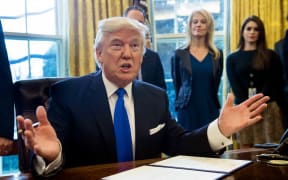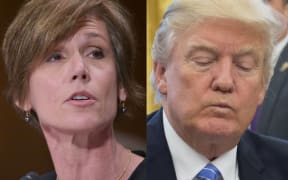US President Donald Trump would encourage Senate Republicans to change the rules on voting if Democrats try to block his nominee for the Supreme Court from approval, he says.
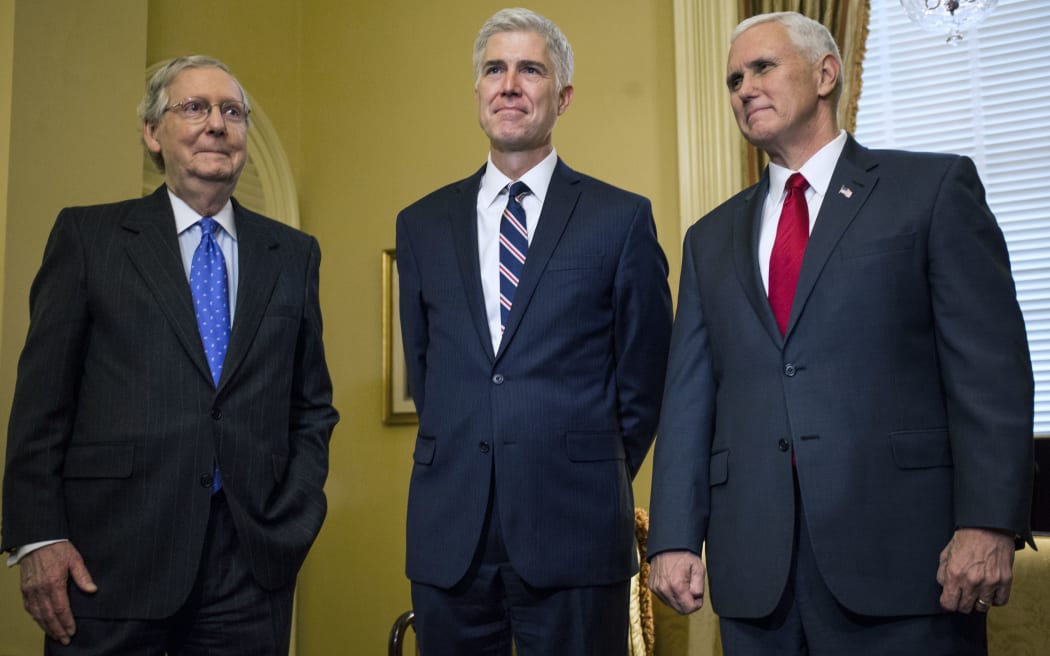
Senate Majority Leader Mitch McConnell, Supreme Court nominee Neil Gorsuch and Vice President Mike Pence meet at Capitol Hill in Washington DC. Photo: AFP
Mr Trump on Tuesday named Neil Gorsuch his nominee for the Supreme Court to replace the late conservative Antonin Scalia. Mr Gorsuch sits as a Colorado appeals court judge.
If approved, Mr Gorsuch would become the youngest such appointee in more than 25 years to the life-long position.
Leading Democrats have come out in staunch opposition to Mr Gorsuch, with Senate Democrats leader Chuck Schumer saying he was sceptical that the nominee could be a strong, independent justice.
Mr Schumer indicated that President Trump's nominee would require 60 votes to be confirmed by the Senate, suggesting that Democrats are planning to filibuster, or talk out, the vote. The Republicans only hold 52 Senate seats.
Republicans refused to even consider Barack Obama's nomination to the court last year.
However, Mr Trump said he would not want congressional gridlock to interfere with Mr Gorsuch and would advise Senate Republicans to "go nuclear" if his Supreme Court pick was blocked.
He spoke at a meeting with interest groups who will support his choice of Mr Gorsuch, and when asked whether he would urge Senate Majority Leader Mitch McConnell to use the so-called "nuclear option" to change the rules to make it easier to confirm him, he agreed.
"Yes, if we end up with the same gridlock we've had in Washington for longer than eight years - in all fairness to President Obama, a lot longer than eight years - If we end up with that gridlock, I would say, 'If you can, Mitch, go nuclear'," Mr Trump said.
"Because that would be a absolute shame if a man of this quality was caught up in the web. So it's up to Mitch, but I say, go for it."
Rule changes already made to push through health, treasury secretaries
Meanwhile, possibly in a sign of things to come, Republicans on a US Senate committee changed the rules in order to allow Mr Trump's picks for health and treasury secretaries to go through despite a Democrat boycott.
The nomination of Jeff Sessions as attorney general was approved in a full justice committee vote along party lines on Wednesday.
But after Democrats on the finance committee said on Tuesday they needed more time and more information about Mr Trump's selections of Tom Price for health secretary and former banker Steve Mnuchin for treasury secretary, Republicans on the finance committee got them through anyway.
They suspended a rule that requires at least one Democrat to attend the vote so they could go through despite the opposition party's absence.
The next stage of the confirmation process is a full vote in the Senate.
Reaction to Neil Gorsuch nomination
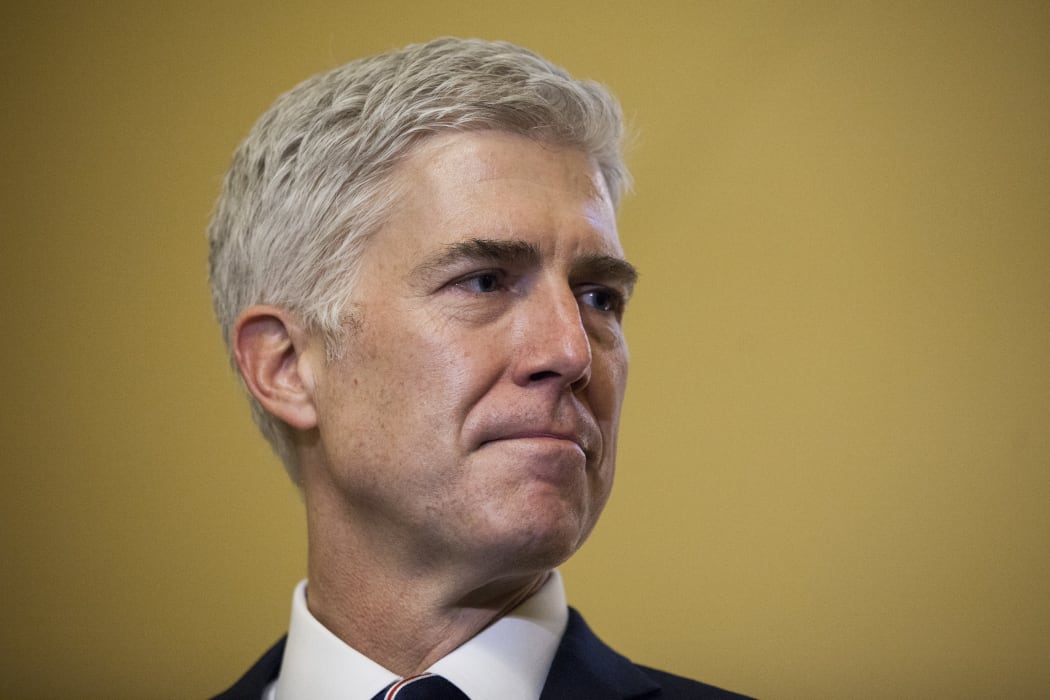
Supreme Court nominee Neil Gorsuch during a meeting with Senate Majority Leader Mitch McConnell on Capitol Hill in Washington DC. Photo: AFP
The court has the final say on such divisive issues such as abortion, gun control and gay rights.
If confirmed by the Senate, Judge Gorsuch, from Colorado, would return the court to a 5-4 conservative majority.
Supreme Court appointments are for life, and Judge Gorsuch, at just 49, could have many decades of service on the US's top judicial body.
Two of Judge Gorsuch's most high-profile appeals court rulings saw him side with business owners who objected on religious grounds to funding some forms of birth control via staff insurance plans.
Where does Judge Gorsuch stand on key issues?
- Abortion: He has not spoken out about Roe v Wade, the case which legalised abortion nationwide in 1973, making it difficult to pin down where he stands on the issue.
- Birth control: Judge Gorsuch has supported religious institutions which objected to requirements for employers to provide access to contraception. In one of his most high-profile cases, he voted in favour of the religious owners of retailer Hobby Lobby who refused to fund certain forms of birth control via staff health insurance.
- Gun rights: He hasn't ruled directly on firearms restrictions, but is thought to be generally pro-second amendment. He once wrote in a legal opinion that a citizen's right to bear arms "must not be infringed lightly".
- Euthanasia: He has been vocal about assisted dying, writing a book in 2009 which opposed legalisation.
Former Democrat presidential contender Bernie Sanders said Judge Gorsuch "must explain his hostility to women's rights, support of corporations over workers and opposition to campaign finance reform".
Massachusetts Senator Elizabeth Warren accused the nominee of siding with large companies over American workers.
House Democratic Leader Nancy Pelosi called Mr Trump's nominee "a very hostile appointment" and "a very bad decision, well outside the mainstream of American legal thought".
Can Democrats block the nomination?
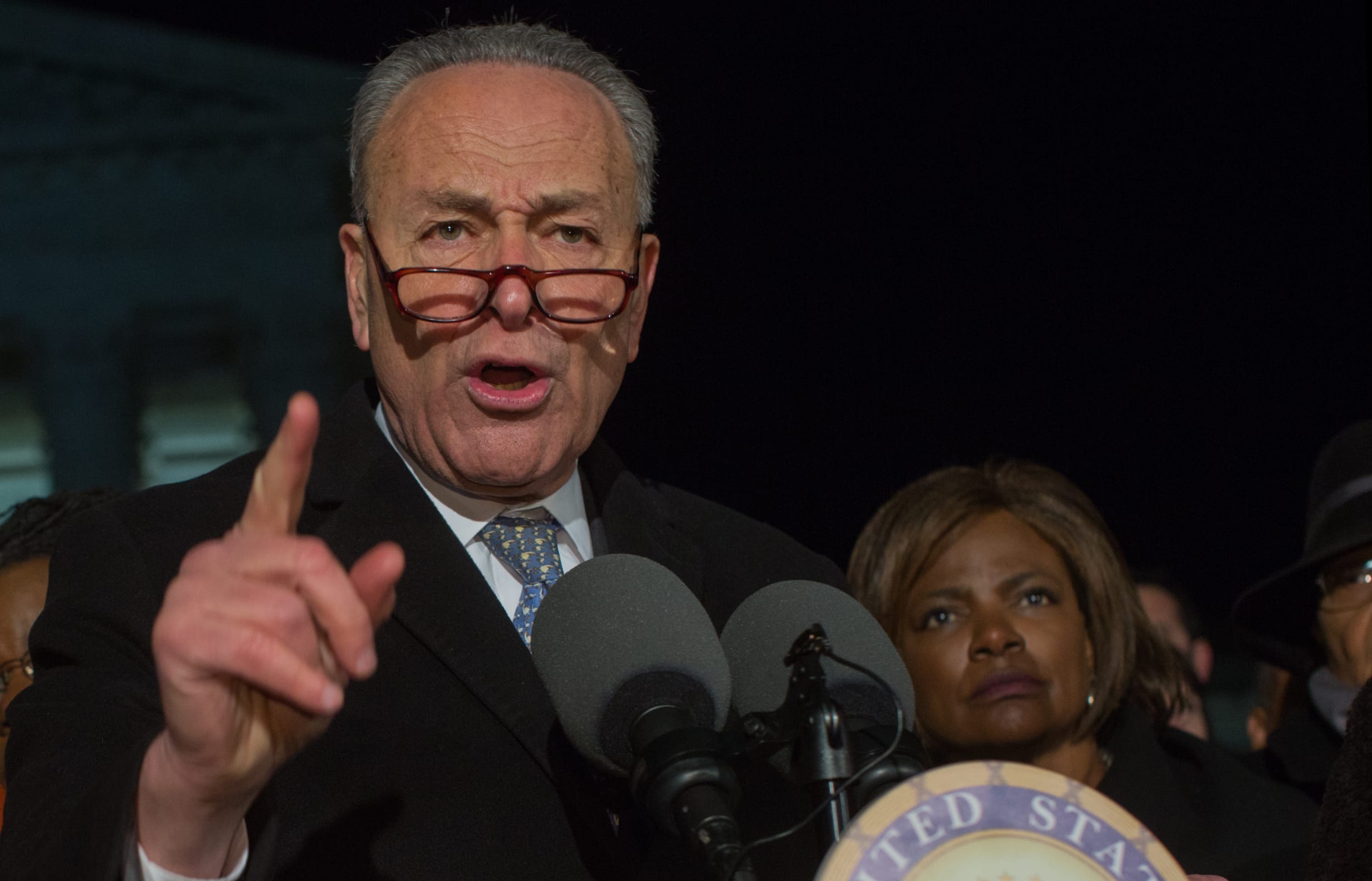
Charles Ellis "Chuck" Schumer, the senior United States Senator from New York and a member of the Democratic Party, speaks at a rally against Donald Trump. Photo: AFP
Republicans would cry foul over a concerted effort to block Judge Gorsuch's confirmation.
However, Justice Scalia's seat became available 10 months before the end of Mr Obama's presidency and Republicans refused to even debate his pick of Judge Merrick Garland, claiming it was too close to an election.
There is no law that says a Supreme Court justice cannot be nominated by a president close to the end of his or her term in office.
Of the existing eight Supreme Court justices, four were nominated by a Republican president and four by a Democrat, though their votes do not always split along straightforward conservative/liberal lines.
Even if Judge Gorsuch makes it through the Senate Judiciary Committee, he will face challenges when the entire chamber convenes for a final vote.
Democrats may seek to prevent that second vote by prolonging, or filibustering, the debate. In that case, the nomination would need 60 votes rather than a simple majority.
Republicans may have to change Senate rules in order to approve Mr Trump's nominee.
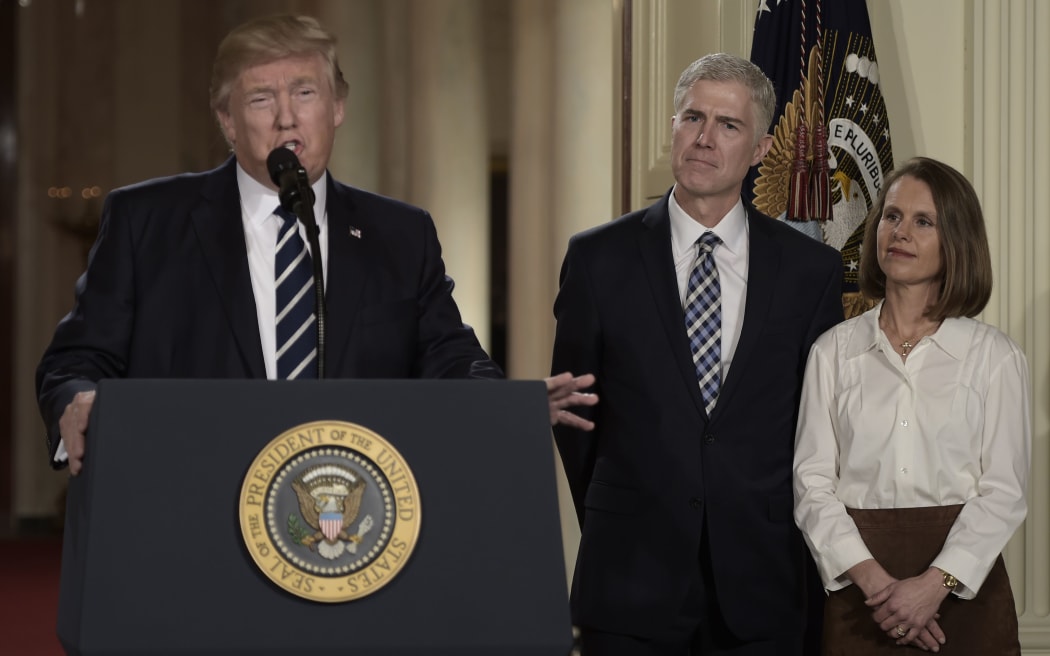
President Trump announces his selection Neil Gorsuch, who stands with his wife Marie Louise, for the Supreme Court of the United States. Photo: AFP
The highest court in the US is often the ultimate arbiter on highly contentious laws, disputes between states and the federal government, and final appeals to stay executions.
It hears fewer than 100 cases a year and the key announcements are made in June.
Each of the nine justices serves a lifetime appointment after being nominated by the president and approved by the Senate.
The court already has cases this term on the rights of transgender students, gerrymandered voting districts and on the Texas death penalty determination.
It is also likely the court will hear cases on voter rights, abortion, racial bias in policing and US immigration policy, and possibly on Mr Trump's controversial executive order banning refugees.
- BBC / Reuters



